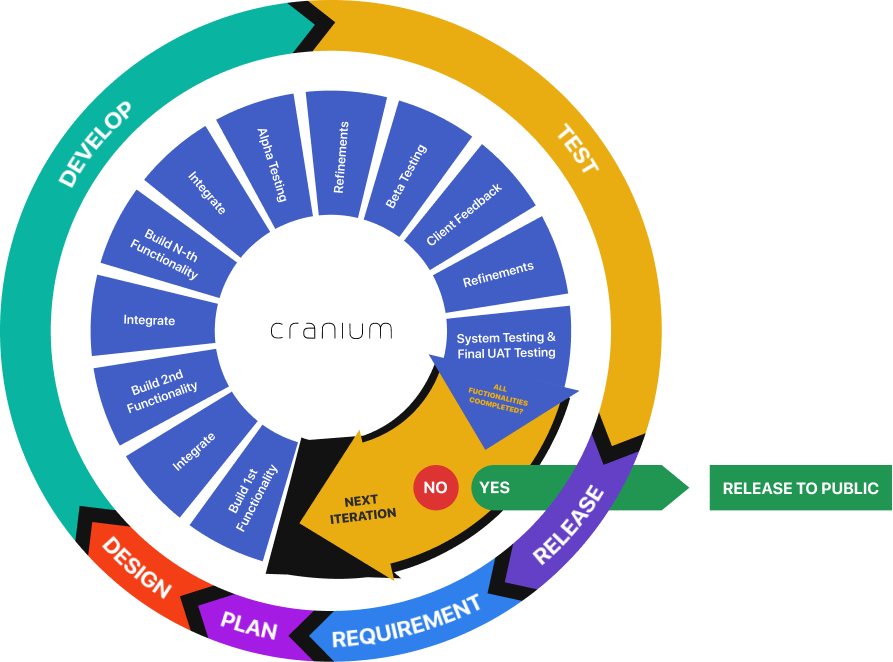
What is Enterprise Resource Planning (ERP) and what are its benefits for businesses? Can all types of businesses use ERP systems? What are the different types of ERP systems available?
Enterprise Resource Planning (ERP) is a computer system designed to integrate all divisions or resources of a company into a unified whole. The goal is to facilitate planning and management of company resources to be more optimal. The use of ERP systems is designed to optimize all business management to be more effective and efficient.
In today’s digital era, automation is very important. There are many business-related tasks that need to be completed quickly and accurately at the same time. Therefore, enterprise resource planning systems can increase the effectiveness of the company and provide better service for customers, which ultimately can generate added value and provide maximum benefits for all stakeholders. The use of ERP programs in business will certainly make it easier for companies to integrate all company resources into one.
Initially, ERP systems were designed for use by large businesses and corporations. However, with technological advancements, enterprise resource planning has become easier for medium-sized and small businesses to use as well. In this article, we will discuss the definition of ERP systems in more detail, what types of companies can use ERP systems, and their benefits for your business.
Types of ERP Systems.
1. On-Premise ERP System: This is also known as conventional ERP or on-site ERP. This ERP system is installed locally on hardware and computer servers managed by IT staff. Therefore, the company manages this enterprise resource planning system in-house.
The initial investment for conventional ERP can be quite high, as the company needs to purchase hardware such as servers to run the system. The company also needs to employ IT staff responsible for managing and maintaining the system to ensure it remains stable and optimal.
Conventional ERP solutions are still widely used because this system allows companies to handle their own data to ensure security.
2. Cloud ERP System: Currently, many companies have not yet understood what cloud-based ERP systems are. Cloud ERP is a type of ERP that allows companies to manage data centrally through an internet connection. The ERP vendor or company is responsible for the smooth running of this system and monitors it through the backend. Users only need a username and password to access the system from a browser.
3. Hybrid ERP System: Hybrid ERP system is a combination of on-premise ERP and Cloud ERP. This type of ERP system functions as a logical solution for many companies who want to improve their existing conventional ERP system without having to change it. In addition to separating the functions between conventional ERP and Cloud-based ERP, Hybrid ERP also helps companies to integrate or add functions to the existing ERP system at minimal cost.
Types of Companies that Can Use ERP Systems.
1. Services and consulting companies such as insurance, technology, financial services, etc.
2. Education
3. Transportation
4. Retail, Wholesale & Supermarkets
5. Healthcare such as hospitals & pharmaceutical manufacturing
6. Mining
7. Export-Import as they need IT inventory for Bonded Zones
8. Government to manage procurement or other administrative matters.
Benefits of ERP for Companies.
One of the advantages of ERP for companies is that it can connect various aspects into one, making the company grow faster. Companies would not consider implementing ERP systems if the software did not have benefits for their business. Here are some examples of ERP benefits:
1. Optimizing Efficiency: With ERP applications, various operational activities that take up a lot of time and energy can be simplified and automated. For example, complex tasks such as inventory checking, task allocation to employees, monitoring working hours, payroll, and financial reporting can all be done automatically with the offered ERP modules. As we know, for Human Resources itself, they can sometimes forget which priorities should be done first.
2. Saving Professional Costs : The implementation of an ERP system in a company also helps to save operational costs. As most operational activities are automated, various disruptions, obstacles, and damages can be well anticipated. The benefit of ERP as a system for automating business processes can certainly save the entire company’s operational costs.
3. Improving Data Security : With the support of firewalls and access management to company data, security and the company become more guaranteed. All data is stored in a centralized system so that access points can be closely monitored and security is maintained. The responsible admin for managing company data can provide limited access rights to employees.
4. Making Accurate Business Forecasts : One of the most crucial things for business advancement is accurate forecasting. Stakeholders in the company rely on reports to make forecasts that will ultimately affect the decisions they make. Therefore, it is very important for businesses to get real-time, complete, and consistent reports. The ERP system becomes a means to facilitate all of that.
Leave a Reply